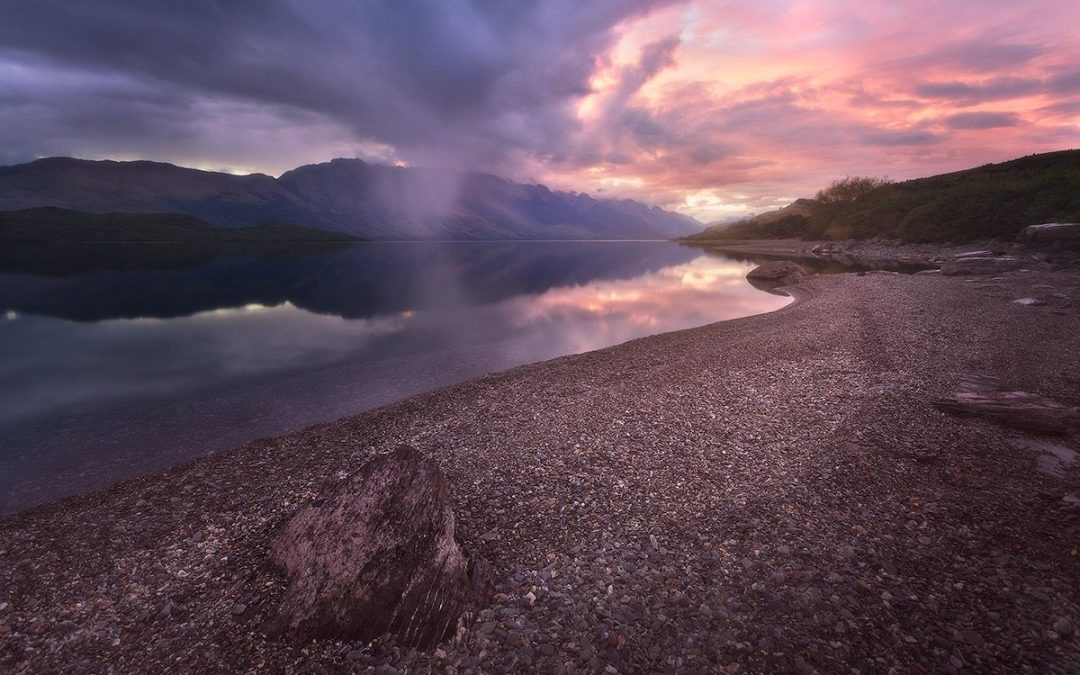This is a shot of lake Wakatipu in New Zealand. About half way along the road to Glenorchy from Queenstown.
Sonia and I had spent the afternoon exploring the copious stopping points along the lakes edge and came back to this spot for sunset because it had some great lines leading to where we knew the sun would be going down.
As the afternoon drew late, the conditions became more and more calm to the point where about an hour before sunset, it almost felt like time itself had stopped because everything was so eerily still.
Some storm clouds started rolling in in the distance and the low sun lit them so softly, the pastels were like nothing I'd ever seen.
And the lake was so still, it mirrored the sky and mountains perfectly.
I went through the motions setting up a decent composition, firing off a handful of bracketed exposures, doing all I could to record the scene.
But no matter what I did in camera, there's no way I could have truly captured the atmosphere in a single, or even multiple shots.
That would be the X Factor I'd need to reintroduce to the image in Photoshop.
And that's why consciously made an extra effort to be in the moment so I could remember it again when I sat down in front of the computer to process it some weeks later.
(How often do we forget to do that as landscape photographers, with our eye glued to the camera?)
When processing an image, I always try to recreate the feeling I felt when I took it.
The problem I have suffered from in the past though is being so caught up trying to capture as many frames, as many different compositions as possible to make the most of a shoot, that I forgot to be in the moment. Then when I get back to the computer I have no internal reference to how the scene made me feel when I was in it. I would be “processing blind”.
So it always pays to step back from your camera, take a breath, and just soak up the atmosphere for a few moments. It might mean capturing fewer frames, but the benefits outweigh that small downside.
For one, it reminds you to enjoy the beauty of your surroundings. And two, it gives you something to call back to and invoke when you come to process your shots.
It's a bit of an abstract concept or idea, so there’s not really any technique I can teach on how to recapture the feelings you felt shooting an image when it comes to processing it.
But for all the not-so-abstract techniques that can definitely help you get the best out of your landscapes in Photoshop…
Talk soon,
Steve


